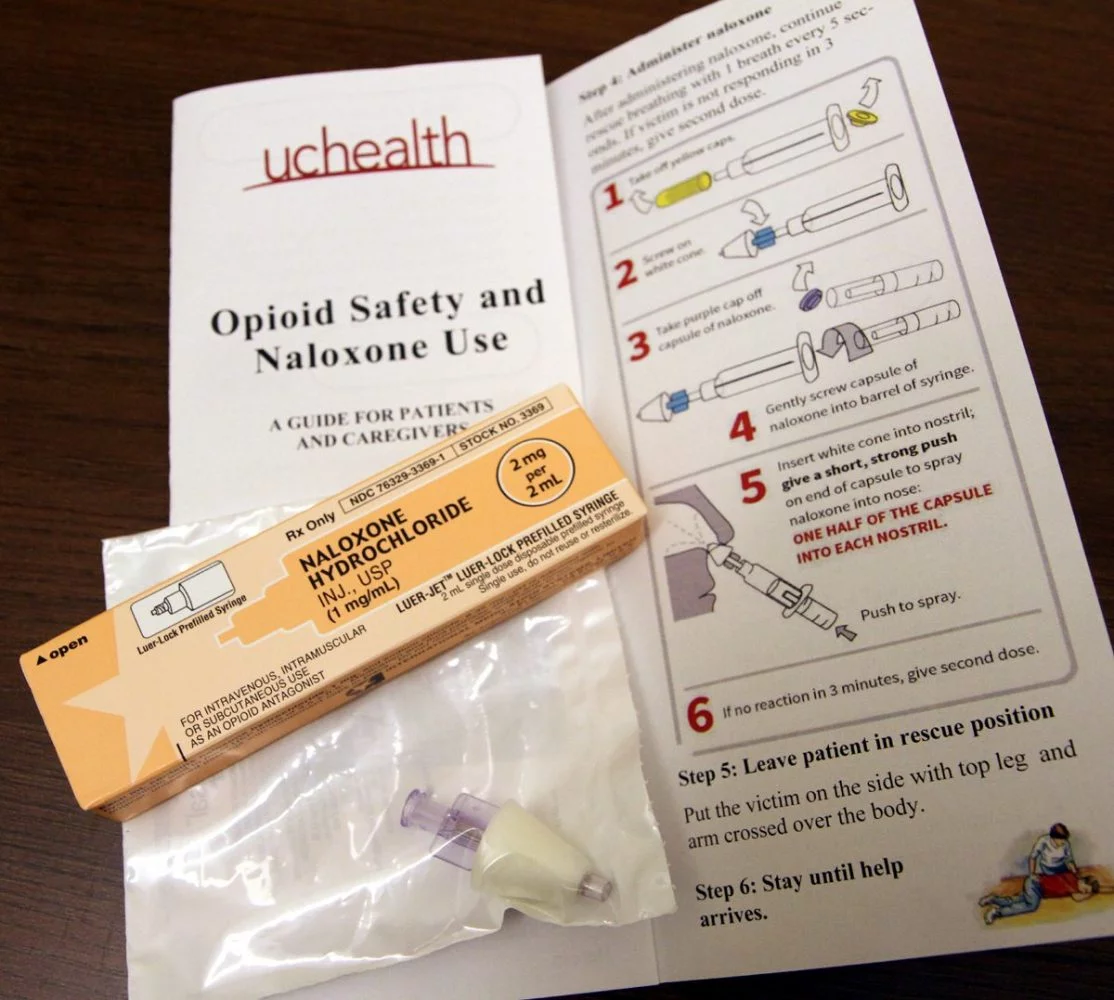A potential lifesaving drug that can reverse overdoses from heroin and opioid painkillers is now available at UCHealth pharmacies in northern Colorado.
Since 2015, the drug naloxone, (brand name, Narcan) has become more readily available to the public following legislation that provides for expanded access to the drug. A standing order by the chief medical officer of the Colorado Department of Public Health and Environment allows the drug to be dispensed by pharmacies and harm-reduction organizations to individuals at risk of an overdose or to those who may be in a position to care for them.
“We want families to know this is out there,” said Erin Meister, UCHealth clinical pharmacist. “We are currently educating our providers and the community as it is something that may provide families and friends peace of mind. Many people overdosing are found by family members or friends, and now they don’t have to feel helpless.”

A Narcan kit, provided by a pharmacist, includes two doses of 2 milligrams of naloxone in a nasal spray, educational materials and illustrated instructions on how to administer the spray. The pharmacist also provides direct counseling about the use of the kit to the receiver at the time it’s dispensed. Without insurance, the kit costs about $70, but it is covered by Medicaid and most other insurance providers, according to Meister. Like the emergency allergy drug epinephrine, Narcan expires, and it must be replaced every 18 to 24 months if not used.
“Our retail pharmacies can fill it as a prescription for patients who have a regular prescription that they may have gotten from their doctor or ER physician, or for someone in a position to help someone else, such as a mother whose child is an addict and wants it just in case,” Meister said.
With the growing number of people addicted to painkillers, possible overdoses are a harsh reality for many people and their loved ones, said Dr. Matthew Solley, a physician in UCHealth’s emergency rooms.
“What you have with Narcan is a sense of empowerment — and it’s not a false sense. This is going to save a life,” he said. “When you have a person at risk, the last thing you want is for them to die while you’re calling 911.”
Narcan is not a substitute for emergency medical care, Solley said. After one identifies an overdose and administers Narcan, they should immediately call 911.
After a patient arrives with an overdose in the ER, UCHealth staff talk to the patient about filling a prescription for Narcan at the time of discharge. Solley said that Narcan is not a doctor’s “permission to be risky with narcotics,” and studies have shown that providing Narcan does not increase the use of narcotics but instead saves lives. If administered to someone who’s actually not having an overdose, it has minimal risks, but includes withdrawals if the person receiving Narcan is on other chronic pain medications, he said.
UCHealth Emergency Medical Services also carries Narcan and has trained some of its community partners in its use, such as staff at Larimer County Community Corrections.
“We now have Narcan throughout the facility,” said Joe Ferrando, assistant director of Larimer County Community Corrections. “We got it thinking we’d probably never need to use it, but then we did. It was extremely helpful in that situation.”
Narcan also is available at UCHealth retail pharmacies at UCHealth University of Colorado Hospital in Aurora.
